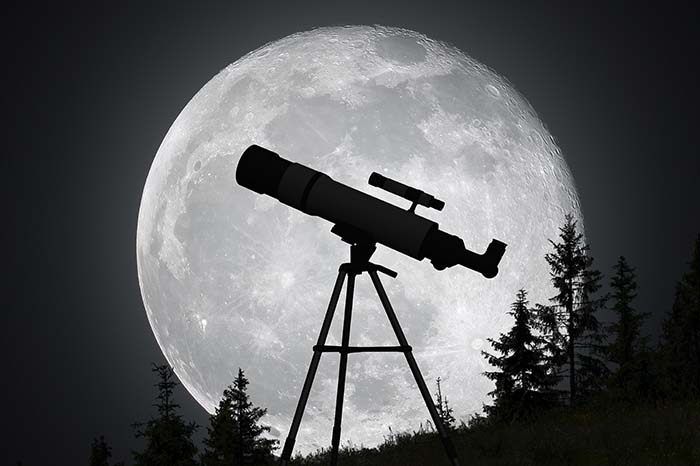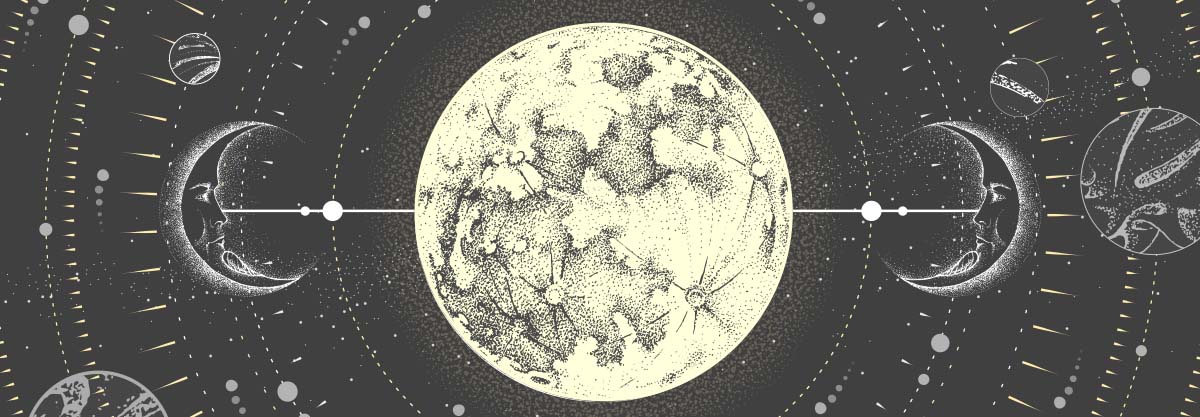Astronomy vs Astrology
The universe and the phenomena taking place in it have fascinated us for centuries. Mankind has been trying to learn the secrets of the cosmos for a long time, in order to better understand where life on our planet came from and what laws of physics we are subject to every day. This has been tried to study even in such past times as antiquity. It was at that time that astronomy was born, and we still use many of the discoveries from that period today. Astrology was also developing at the same time, so it is not surprising that people with the then level of knowledge were trying to explain their life and its course in various ways. Today, many people still believe in the power of stones, prophetic dreams or predictions, even though they are not confirmed by science and research.
What is the meaning of astronomy in science?
Astronomy is a science that studies the structure of the cosmos, discovers and describes new celestial bodies. Thanks to it, we know the planets not only of our solar system, but also of distant galaxies. We know what determines the position of the Sun in the sky and when a comet is about to fly by. This is possible due to the observation of these objects, for which increasingly modern telescopes are used. Astronomy is a broader subject, which also includes astrophysics. Its purpose is both to discover the laws of physics by which the universe is run and to explain their influence on the appearance of the cosmos. Astrophysics is an important science because, in fact, the same principles of physics occur on Earth as in space.
What is astrology all about?
Astrology, on the other hand, tries to answer the question of how the arrangement of the stars affects the life of each person. According to astrology, we can explain our past fate on this basis and predict not only our own future, but also the future of entire nations. An astrologer is a person who can read the signs coming from the universe and also uses various tools for this: zodiac signs for which horoscopes are created, tarot cards or numerology.

Astrology assumes that a person's birth date and zodiac sign have an impact on his entire life, so they can also be used to predict future happenings. In order to make the reading of the future from the stars more reliable, people involved in astrology try to use science for this. For this they use mathematical operations or just astronomical discoveries - but it is worth remembering that astrology is not officially recognized as a field of science.
Are astrology and astronomy the same thing?
Astrology is very often confused with astronomy - probably because it attempts to use the same concepts and discoveries. Just as astronomy deals with the structure of the cosmos, astrology is very much concerned with the celestial sphere, the planets and the arrangement of stars in the sky. So it is based on the same objects, but it puts a layer of esotericism, mystery and spiritual development on them. The names of the two fields are also similar, so it is easy for people who have nothing to do with either astrology or astronomy to get confused.

Is astrology a pseudoscience?
A very large number of people believe that astrology is a science supported by solid facts and observations, but we can't fully agree. Although it has as long a history as astronomy, and many cultures, even thousands of kilometers apart, dealt with astrology, which in ancient times was indeed more strongly associated with the science of the stars. However, this was based on a rather primitive perception of the system of the stars and a lack of knowledge to explain all sorts of natural phenomena.
Astrology vs. scientific facts
Astrology extracts from astronomy the single pieces of information that best fit its theory and omits those that debunk it. It takes advantage, for example, of the fact that many discoveries were already made in ancient times, and that's when the signs of the zodiac were created.
At the time when the signs of the zodiacs were described by ancient scholars, people treated the sky like a flat sheet of paper and really thought that a given star lay next to another. We now know that this is actually not the case at all, and objects that look like they lie close together can be hundreds of thousands of kilometers away. This means that they often don't affect each other at all. The distances in space are enormous and even abstract for humans. Light travels them over many years, so what we see in the sky at any given moment is often a thing of the past.
It is also worth mentioning that astrology is very selective about the objects in the cosmos that, according to it, affect human life. Even in the past, astrologers had to include newly discovered planets in their horoscopes, and they did it surprisingly fast. Faster than the planet concerned managed to circle the Sun and pass through all the zodiac signs in the sky. Some celestial bodies are not considered by astrologers at all. A nebula, a brown dwarf or a quasar, after all, are also important elements of the cosmos and affect many other objects, and astrologers do not take them into account in their divinations.

Why are divination, esotericism and numerology still so popular?
Astrology answers questions that science cannot answer, and creates simple diagrams used to describe the world. It claims to be able to read our future from the stars, and what is known becomes less frightening. It also often gives hope that life will change on its own. It explains any failure or misfortune by saying that our fate has already been written in the stars. On the one hand, it pulls from us the responsibility for our decisions, and on the other, it minimizes the role of mere coincidence in everyone's life.
The advantage of astronomy over astrology
Astrology has not been supported by any research and is often based only on anecdotes. Just as it was once believed that a lunar eclipse or the passage of a comet heralds impending disasters, so now some people still believe that being born in a particular zodiac sign determines given character traits. However, this is not supported by science and modern knowledge.
All natural sciences, astronomy or physics, are based on reliable observations, research and experiments. Before accepting a hypothesis as true, the relevant premises must follow. Of course, it is undeniable that celestial bodies interact with each other and also affect life on Earth. However, not in the way astrologers would like to see it.
Check out similar entries:



